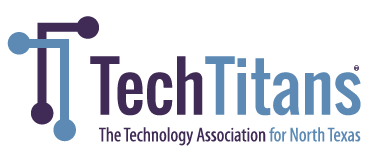Research Associate

University of Texas at Dallas
Posted on Nov 21, 2024
| Posting Number | S06095P |
|---|---|
| Position Title | Research Associate |
| Functional Title | Research Associate - Post-Doctoral |
| Department | Psychology |
| Salary Range | $61,008+, DOQ |
| Pay Basis | Monthly |
| Position Status | Regular full-time |
| Location | Richardson |
| Position End Date (if temporary) | |
| Posting Open Date | 11/20/2024 |
| Posting Close Date | |
| Open Until Filled | No |
| Desired Start Date | 08/01/2025 |
| Job Summary | The Boyd Computational Social Science Lab is seeking a highly motivated post-doctoral scientist who is passionate about exploring the intersection of computational methods (e.g., machine learning, natural language processing, artificial intelligence) with social and personality psychology. The ideal candidate will have a deep interest in leveraging computational techniques to understand complex human behavior, language, and social dynamics on a large scale. This role will contribute to a growing body of research that applies computational social science to address fundamental questions in personality, social interaction, mental health, and cultural psychology. The Research Associate will be primarily responsible for planning, conducting and directing a wide variety of experiments. Responsible for the evaluation and interpretation of research data. This position will conduct experiments using advanced equipment and applying complex techniques, methods and procedures; plan and execute the details of experiments according to research protocol. This position is in the Department of Psychology in the School of Behavioral and Brain Sciences at The University of Texas at Dallas (UTD — bbs.utdallas.edu). UTD is the fastest growing University in Texas, is ranked number 3 in the nation among universities less than 50 years old and houses a vibrant research community. The city of Dallas is an international economic hub with a vibrant cultural atmosphere and world-class sports and entertainment in a temperate climate. The salary for Post-Doctoral Research Associates in BBS is determined by years of experience per the current NIH (NRSA) stipend levels. While the opportunity for a salary increase based on years of experience exists, any increases are contingent on the availability of additional funding and, as such, are not currently guaranteed. This position is funded a minimum of 1 year with the possibility of renewal, dependent on performance and continued funding availability. |
| Minimum Education and Experience | Ph.D in a related field. |
| Preferred Education and Experience |
|
| Essential Duties and Responsibilities | Duties & Responsibilities:
Essential Knowledge, Skills & Abilities: The successful candidate will possess the following knowledge, skills, and abilities:
|
| Physical Demands and Working Conditions | |
| Physical Activities | |
| Working Conditions | |
| Additional Information | Remote Work: This position is on-site and in-person. Travel: This position may be subject to local travel for training/development, conferences, or other project needs. What We Can Offer UT Dallas is an Equal Opportunity Employer. We offer an employee-friendly work environment with a comprehensive benefits package including:
All UT Dallas employees have access to various professional development opportunities, including a membership to Academic Impressions, LinkedIn Learning, and UT Dallas Bright Leaders Program. Visit https://hr.utdallas.edu/employees/benefits/ for more information. About Us UT Dallas is a top public research university located in one of the nation’s fastest-growing metropolitan regions. Our seven schools offer more than 140 undergraduate and graduate programs, plus professional certificates and fast-track programs. Our student body is 31,000 strong, reflecting students from over 100 countries and a multiplicity of identities and experiences. UT Dallas is committed to graduating well-rounded members of the global community whose education has prepared them for rewarding lives and productive careers in a constantly changing world. Rich with visual and performing arts venues, museum districts, professional and semi-professional athletics teams, botanical gardens, accessible trails and so much more, the Dallas-Fort Worth (DFW) metroplex has something for everyone to explore. UT Dallas partners with regional higher education institutions and school districts and with the Richardson Innovation Quarter (Richardson IQ), a major hub for innovation, entrepreneurship, and educational activities. |
| Special Instructions Summary | For full consideration, please submit to boyd@utdallas.edu:
|
| Important Message | 1) All employees serve as a representative of the University and are expected to display respect, civility, professional courtesy, consideration of others and discretion in all interactions with members of the UT Dallas community and the general public. 2) The University of Texas at Dallas is committed to providing an educational, living, and working environment that is welcoming, respectful, and inclusive of all members of the university community. UT Dallas does not discriminate on the basis of race, color, religion, sex (including pregnancy), sexual orientation, gender identity, gender expression, age, national origin, disability, genetic information, or veteran status in its services, programs, activities, employment, and education, including in admission and enrollment. EOE, including disability/veterans. The University is committed to providing access, equal opportunity, and reasonable accommodation for individuals with disabilities. To request reasonable accommodation in the employment application and interview process, contact the ADA Coordinator. For inquiries regarding nondiscrimination policies, contact the Title IX Coordinator. |

